Laboratory
Department of Agriculture and Forestry is well equipped with state of art labs to train students to advance their theoretical knowledge and sound practices of the profession.
The following are the labs run by the department under B.Sc. Agriculture:
Agriculture Meteorology
Agrometeorology is the study of weather and use of weather and climate information to enhance or expand agricultural crops and/or to increase crop production. Agrometeorology mainly involves the interaction of meteorological and hydrological factors, on one hand and agriculture, which encompasses horticulture, animal husbandry, and forestry.


Elementary Agriculture
Agricultural education can be taught at the elementary level, middle school level, secondary, post secondary and adult levels. Elementary agriculture is taught in public schools and private schools, and deals with such subjects as how plants and animals grow and how soil is farmed and conserved.
AGRONOMY LAB
This lab is well equipped with instruments that are used in agriculture field at the time of field management and cultivation. Also the lab contains various plant growth hormones and chemicals that can help enhance the growth and also facilitate various research activities.
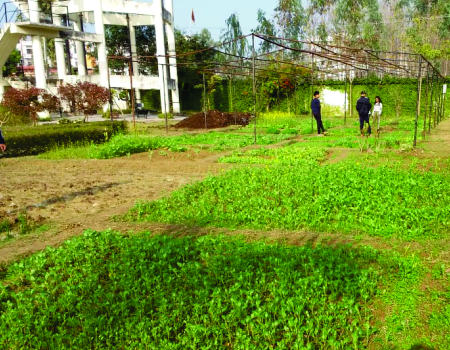
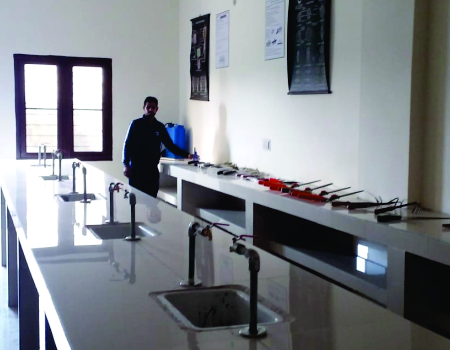
| S. NO. | Name of the Experiment | Objective |
|---|---|---|
| 01 | Effect of seed depth on crop yield | To check effect of depth of seed on crop yield |
| 02 | Effect of nitrogen concentration on crop growth and yield | 30 % |
| 03 | Study of various methods of seed sowing | To study different ways of seed sowing |
| 04 | Study of various methods of seed sowing | To check the effect of various plant growth hormones on and growth and yield of crops |
| 05 | Effect of bio fertilizers on crop yield and growth | To check the effect of bio based fertilizers on yield and growth of the crops |
| 06 | Effect of tillage on crop growth and yield | To check the effect of tillage activity on crop growth and yield |
| 07 | To study the different types of irrigation methods | To check the irrigation methods |
MICROBIOLOGY LAB
We have a well-equipped laboratory of microbiology containing Scanning Electron Microscope, Autoclave, Laminar Air Flow, Bacterial Identification Kit etc.
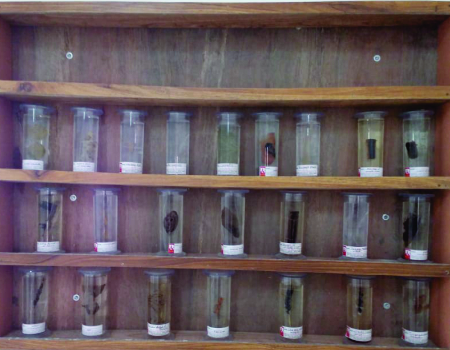

| S. NO. | Name of the Experiment | Objective |
|---|---|---|
| 01 | Isolation of rhizobium from root nodule of leguminous plants | Isolation of rhizobium from root nodule |
| 02 | Preparation of Nutrient Agar Media (NAM) | Preparation of nutrient agar media with proper sterilization |
| 03 | Isolation of soil bacterium from soil sample | Taking a soil sample and isolating soil bacterium from it |
| 04 | Cultivation of rhizobium in in-vitro condition | Cultivate rhizobium in properly controlled and sterilized laboratory conditions |
| 05 | Differentiate between bacteria by gram staining method | Differentiate between gram positive and gram negative bacteria by gram staining method |
| 06 | Isolation and identification of fungi from the infected plant part | Identify the fungi from infected part of the plant |
| 07 | Effect of Pseudomonas aeuroginosa leguminous plants | To check the growth of leguminous plants |
GENETICS AND PLANT BREEDING LAB
We have a very well maintained laboratory for genetics experiments like protoplast isolation, hybridization etc.
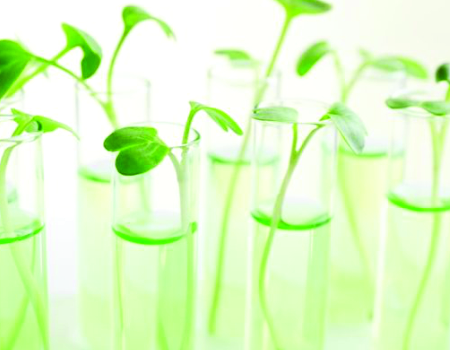

| S. NO. | Name of the Experiment | Objective |
|---|---|---|
| 01 | Isolating plant cell DNA | Plant DNA isolation with the help of a centrifuge |
| 02 | Isolation of plant protoplast | Protoplast isolation of plants by enzymatic method |
| 03 | To maintain the osmotic pressure after protoplast isolation | Maintain the osmolarity of protoplasts by keeping it in a appropriate osmoticum |
| 04 | Gene delivery through Polyethylene glycol mediated gene transfer method | Polyethylene glycol mediated |
| 05 | Study of various bacterial plasmids | To study the bacterial plasmids | 06 | Statistical analysis of the various generations of plant | To statistically analyse the various plant generations |
| 07 | Gene transfer by electroporation method | To perform the electroporation method of gene transfer |
SEED PRODUCTION FEED
We have a large incubator for germination of seeds in-vitro condition. All the high quality seeds which are rare are given various treatments inside the lab for ensuring its proper growth.
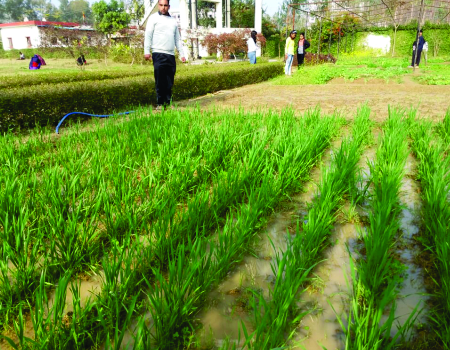
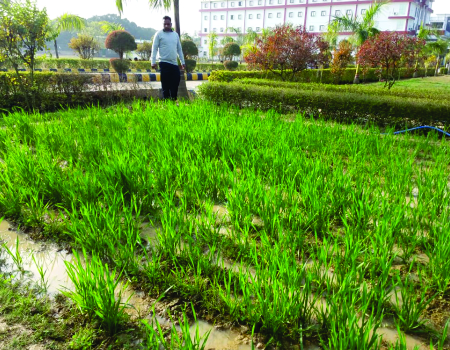
| S. NO. | Name of the Experiment | Objective |
|---|---|---|
| 01 | Hardening of seeds through various chemicals | Use of chemicals in hardening of seeds |
| 02 | To study the effect of chemicals on dormancy of seeds | Chemicals effect on dormancy of seeds |
| 03 | To study various phases of seeds it undergo during plantlet production | Various phase transition a seed undergoes during maturation |
| 04 | In-vitro Hybrid seeds preparation | Conduct the experiment of hybrid seed preparation |
| 05 | Self-incompatibility of seeds | To check the incompatibility of seeds |
| 06 | Seed hydration | To check the hydration content of the seed |
| 07 | In-vitro albuminous seeds | Preparation of albuninous seeds |
BIOCHEMISTRY LAB
We have a well-equipped lab for performing biochemistry experiments such as testing of various biomolecules (carbohydrates, lipids, proteins and DNA). We have a refrigerated centrifuge, testing kits, plenty of glassware etc.
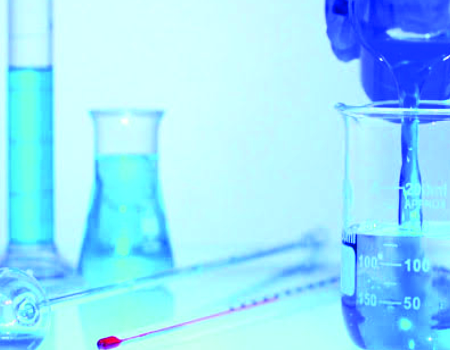
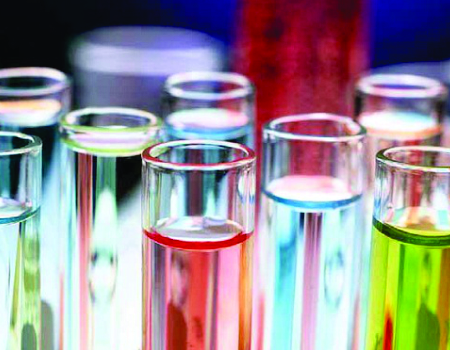
| S. NO. | Name of the Experiment | Objective |
|---|---|---|
| 01 | To prepare buffer solution of a given normality | Prepare buffer solution of a given normality |
| 02 | To determine pH of a given sample | Determination of pH of a given sample |
| 03 | To study acid base titrations | Acid base titration studies |
| 04 | To detect the presence of carbohydrate in a sample by molisch test | Molisch tests for carbohydrates |
| 05 | To determine the presence of proteins in a given sample by ninhydrin test | Detection of proteins by molisch test |
| 06 | To determine acid value of mustard oil | Acid value of mustard oil |
| 07 | To determine peroxide value of mustard oil | Peroxide value of mustard oil |
SOIL TESTING LAB
In soil testing lab we have pycnometer for soil bulk density testing, digital pH meter for checking the soil’s pH, hot air oven for testing moisture content of soil and soil testing kit.
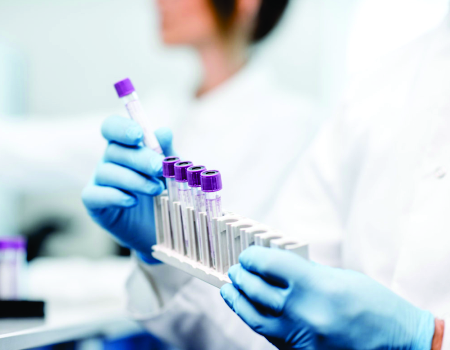
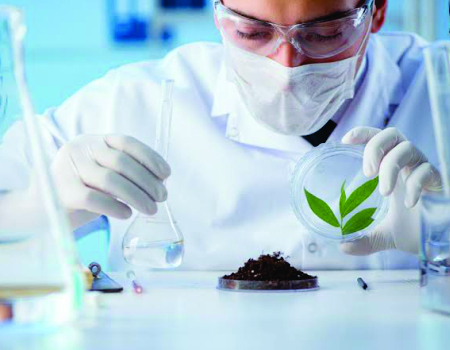
| S. NO. | Name of the Experiment | Objective |
|---|---|---|
| 01 | To study various specimens of insects kept in the laboratory | Study of various insect specimens of laboratory |
| 02 | Collection of insects from the outer environment | Collection of insects from the campus |
| 03 | Study of the various insects collected | Detailed study of the insects collected on the basis of their morphology |
| 04 | Learn the method of dissection of the insects | Dissection of insects |
| 05 | Study of pest | To study the morphology of pest |
| 06 | Study of different organs of insects | To keenly study the different organs of insects |
PLANT PATHOLOGY LAB
We have a very well equipped plant pathology lab in which we study different types of plant diseases. We have a high quality microscope for detection of microorganisms which attacks plants.

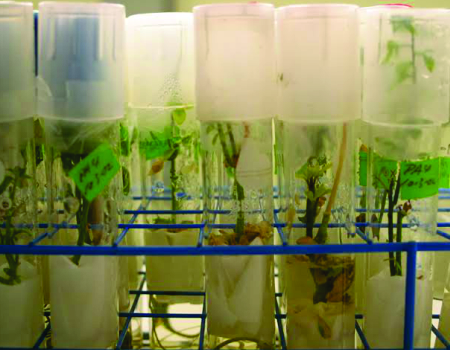
| S. NO. | Name of the Experiment | Objective |
|---|---|---|
| 01 | Isolation of Albugo candida from crucifer plants | Albugo candida isolation from crucifer plants |
| 02 | Identification of wheat disease in agriculture fields | Wheat disease identification in agriculture fields |
| 03 | Analysis of wheat grain from diseased plants | Wheat grain disease analysis from diseased plant |
| 04 | Study the disease cycle of Phytopthoreinfestans | Study of Phytopthoreinfestans |
| 05 | Isolation of fungi Colletotrichumfalcicatumfrom sugarcane | Colletotrichumfalcicatumisolation from sugarcane |
TISSUE CULTURE LAB
Tissue culture lab of RC is very well maintained and has equipments such as Laminar air flow (LAF), Autoclave, culture room for growth of plants, distillation unit, and high quality chemicals and plant growth hormones (BAP, NAA, 24-D, zeatin etc.) and media (MS media, Gamborg’s media, etc.).
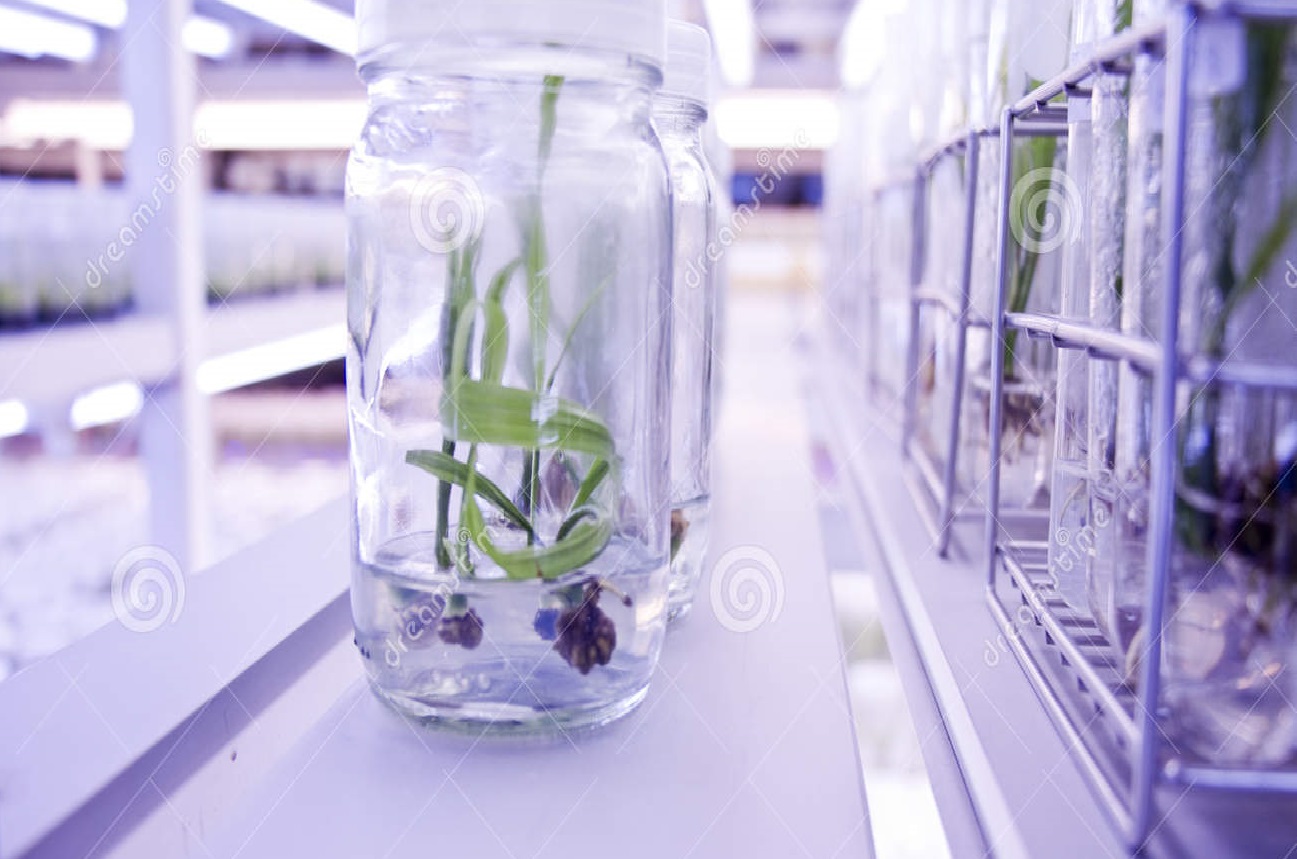
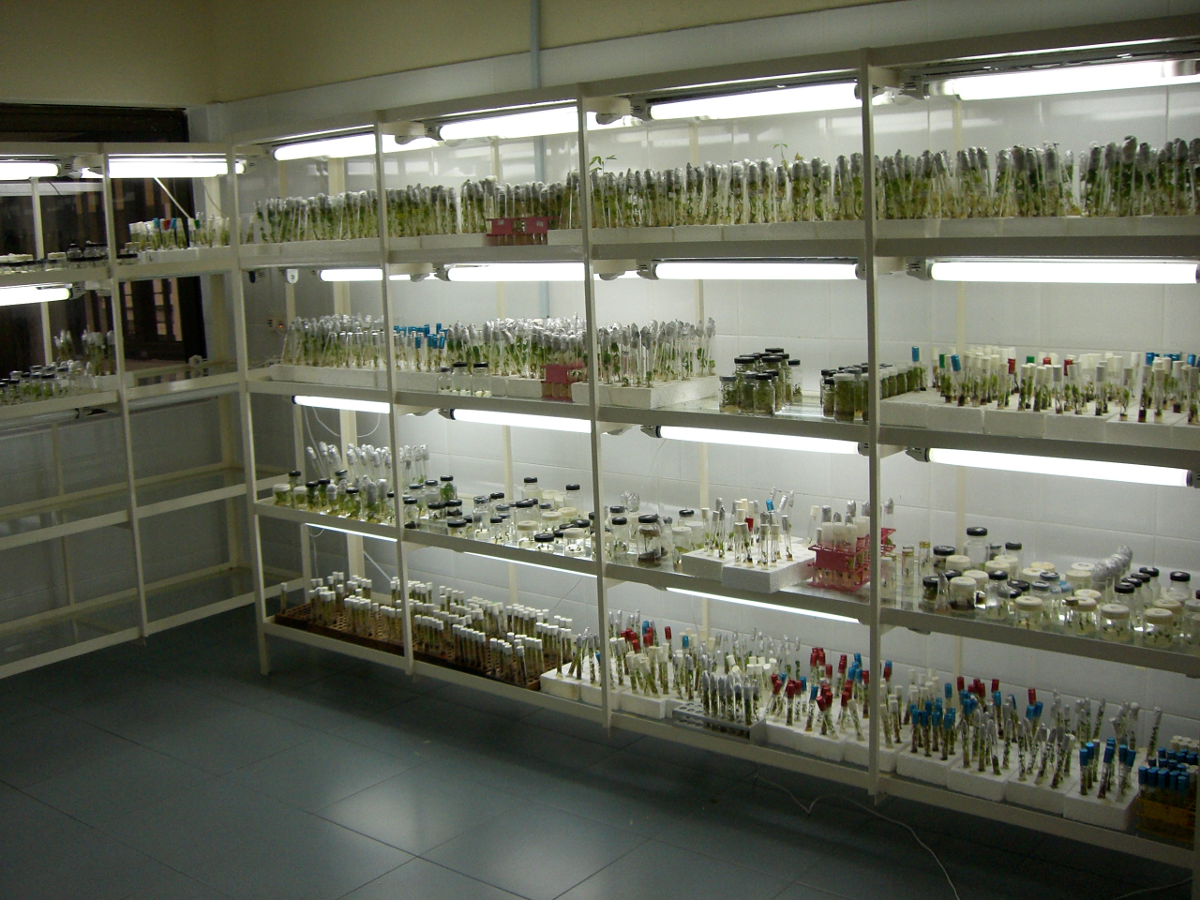
| S. NO. | Name of the Experiment | Objective |
|---|---|---|
| 01 | Preparation of MS media | Preparation of MS media for plant growth |
| 02 | Preparation of Gamborg’s or B5 media | Preparation of Gamborg’s media for plant growth |
| 03 | Tissue culture of bamboos species by somatic organogenesis | Somatic organogenesis of bamboos species (Bambu satulda) |
| 04 | Tissue culture and acclimatization of plants | Tissue culture and acclimatization of plants |
| 05 | Calls induction of mango leaves | Induction of callus from mango leaves |
| 06 | Micropropagation studies of Whithania somnifera | To study the micropropagation of Whithania somnifera in-vitro |
| 06 | Isolation of DNA from plant cells | To isolate the DNA from plant cells |
POLYHOUSE
We have a very huge polyhouse with proper irrigation facilities for growing crops that are grown in different seasons. Polyhouse provides optimal temperature to various crops. All the treated crops are first grown inside the polyhouse and then transplanted in the outside field.
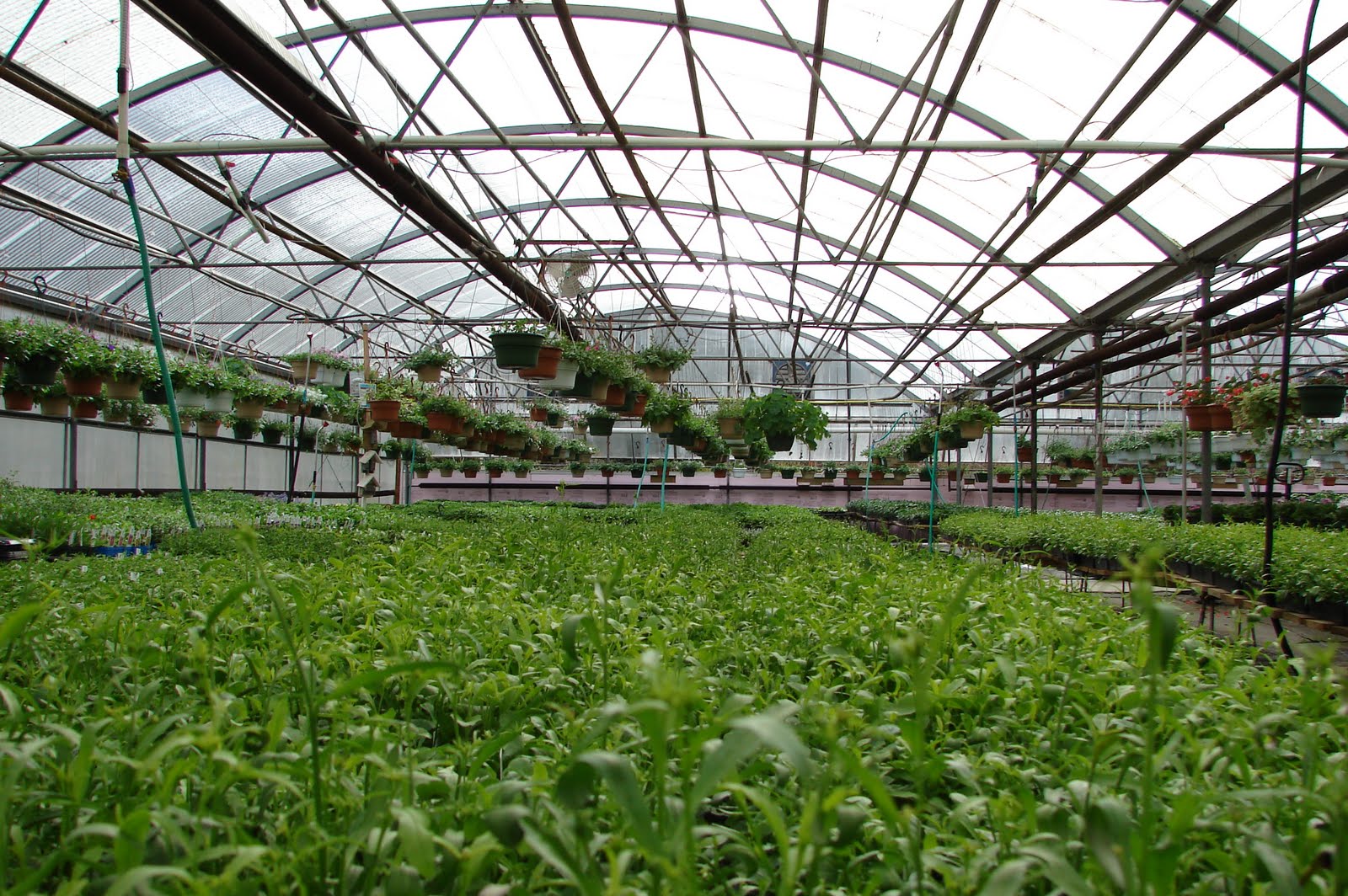
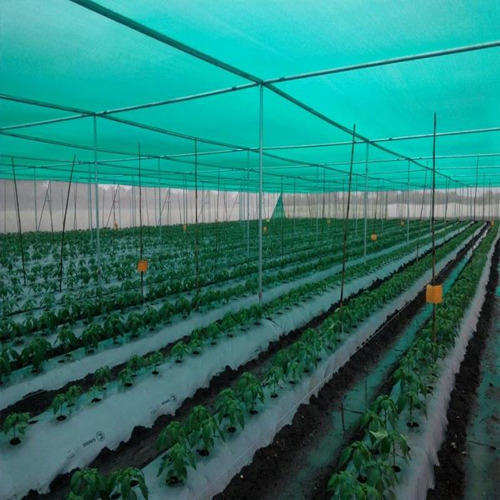
| S. NO. | Name of the Experiment | Objective |
|---|---|---|
| 01 | Intercropping practice | Applying intercropping method of cultivation in a polyhouse |
| 02 | Nursery preparation | Prepare a nursery for lettuce and then transplanting it outside |
| 03 | Effect of water timing on growth and yield of crops | To check the effect of water spraying time on growth and yield and plants |
| 04 | Excessive salt tolerance of plant | To check the effect of excessive salt concentration on the growth and yield of the crops. Also identify which crop has the highest salt tolerance. |
| 05 | Cold shock to plants | To give the crops excessive cold shock and check the behaviour of crops under that condition. Also identify which crop has the highest cold shock tolerance |
| 06 | Heat shock to plants | To give the crops excessive heat shock and check the behaviour of crops under that condition. Also identify which crop has the highest heat shock tolerance |